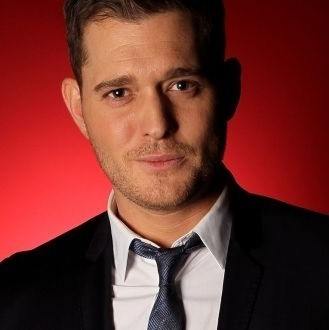

Why Michael Buble Is My Personal Brand Hero
Photograph: Scott Halleran/Getty Images
I watched an interesting episode of the Netflix series Explained the other day on the subject of political correctness*.
It’s something that’s been cropping up more and more in my conversations with people as we ponder how to tread the precarious line between saying what we think (and therefore being authentic) and avoiding a negative reaction (something that can damage your personal brand).
Because as someone for whom courtesy is a major value, causing offence is certainly not something I set out to do…but that doesn’t mean it doesn’t happen.
The law of averages
Consider how many people I have spoken to in the last decade, during hundreds of workshops and keynote speeches; how much copy I have written via my book, blog and LinkedIn posts; how many interviews I’ve done, transmitted to who knows how many listeners.
The law of averages says at least a few of them will have disliked my points of view, maybe even to the point of being offended by them. And on the occasion someone has made that offence known to me, I’ve felt horrible.
But then I remember Michael Buble
Until December 2011, Michael Buble wasn’t someone I knew much about, other than he was a young guy singing old songs, in the style of Frank Sinatra. I had no strong opinion about him one way or another. But then I read a snippet of an interview he’d given to the Daily Telegraph that elevated him to my personal brand hero.
In the story, he revealed that some people walk out of his concerts because of his bad language on stage and that he regularly receives letters of complaint from fans. He said:
“Almost every night when I’m on stage my agent will say to me: ‘Well kid, 30 people wanted their money back’. At first it was a real worry for my agents. They kept saying: ‘Mike, you’re losing the audience’. Especially when I wasn’t playing to that many people.
“I remember my American agent saying: ‘Tonight it was huge, 70 people wanted their money back’.
“And I said: ‘Give them their money back. I don’t want them at my show. I don’t want some stuck-up prudes [who] can’t laugh at themselves’. Give me my kind of people and we’ll be fine.”
Because, while 30 – 70 people a night walked out, hundreds and hundreds more stayed. They weren’t offended. They liked what they heard. His personal brand worked for them in a way that it didn’t work for those who took offence.
He’s now one of the most successful recording artists of all time, selling over 30 million records, winning four Grammy awards and having four consecutive albums at number one in the Billboard charts.
Not bad for someone who people took offence to, eh?
The moral of the story
I’ve said it before and I’ll keep saying it again: not everyone will buy your personal brand and that’s perfectly fine. Or as a friend once replied when I told him about someone on my workshop who’d taken umbrage at something I’d said: “If you’re not offending anybody, you’re not doing your job properly.”
There’s not a single product or company brand in the world that is loved by everybody. Somebody is always ready to take offence at their latest ad or newest product launch. In the days of social media and political correctness, it can’t be avoided. So why should your personal brand be any different?
By all means, you could should make the effort to keep your brand positive and avoid the obvious ways that people could take offence. (Steering clear of statements about religion, sexuality and politics is a good place to start.) But take a leaf out of Michael’s book and don’t do it at the expense of your authenticity.
How does political correctness lead you to act? Do you dial down your personal brand to ensure you don’t cause offence? And do you sometimes feel you’ve dialled it down too far? Or do you find the PC minefield easy to navigate and don’t give it a second thought? I’d love to hear your point of view with a comment below please.
*The series offers 15 – 20 minute introductions to a hotch-potch of subjects including tattoos, K-pop, the exclamation point, the stock market and the female orgasm.







Hi Jennifer,
Its always refreshing to hear others champion their brand. I know I am possibly disliked more than liked, but I have no issues as I like me and I like the people that like me. The rest have to make their own choices, I’m with Michael on that value 🙂
Take good care
It’s a good mental place to be Helen
Hmm! I agree with the view that you need to understand your target audience and be authentic and genuine in your interaction with that audience. However, I worry slightly that it can be used as an excuse to be selfish and lacking in empathy. I wouldn’t be happy to be disliked by more people than liked me but I accept that some people don’t like me. I also think that I am liked by some people I dislike and, occasionally, like someone who doesn’t like me.
You’re right that there’s a line between ‘I am who I am’ and ‘I don’t care who I am’ Denis.
Another great article Jennifer, have a great Christmas
Thanks Matthew. Enjoy your Christmas too.
I love your friend’s classic line – “If you’re not offending anybody, you’re not doing your job properly.” It’s made me re-think how careful I’ve realised I’ve started to become in my leadership development sessions! It’s a fine line, and I wouldn’t want to offend anyone – but I do want to provoke thought – and sometimes that means being a little controversial. I quite like being a little controversial – and maybe I’ve lost some of that in my own brand lately…
I love that my friend’s advice has added value to you too Kate. It certainly made me stop and think.